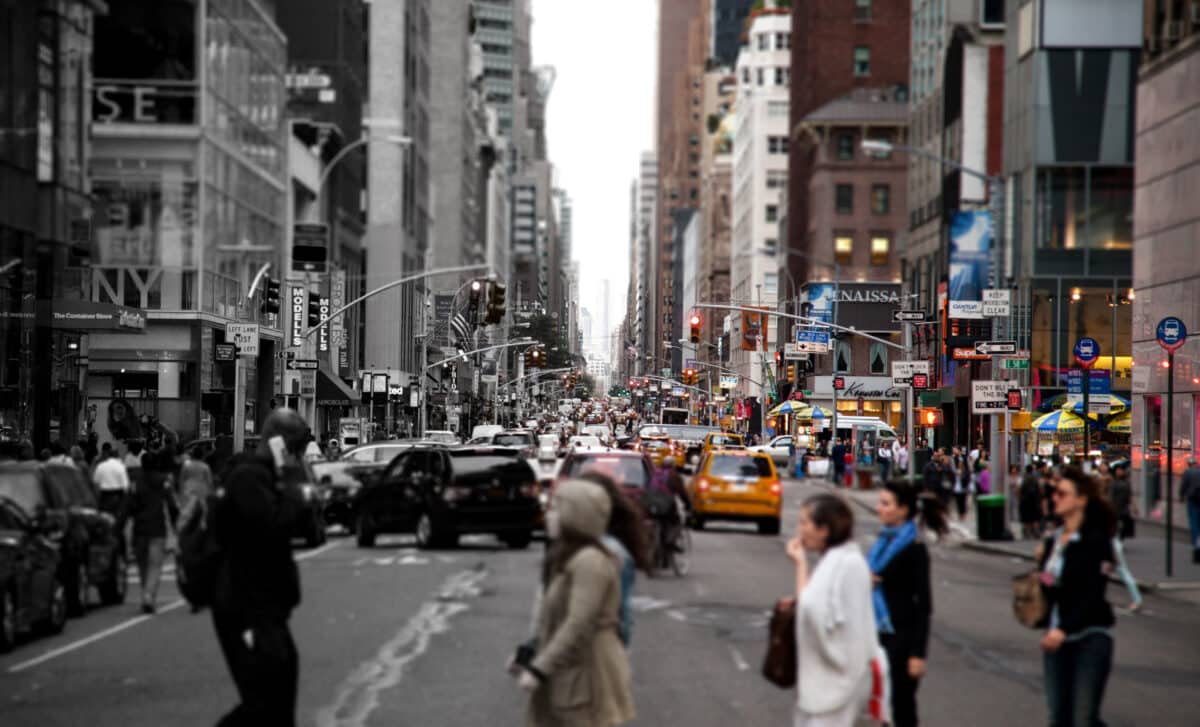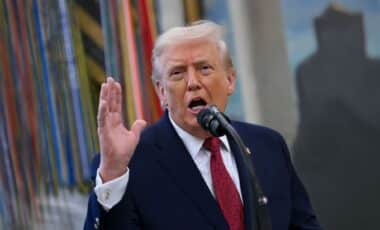Rising concerns over tariffs and economic instability are beginning to take a toll on U.S. consumers and businesses, according to a report from AP News. Recent data shows that consumer spending fell in January, marking the sharpest decline since February 2021, despite an increase in incomes. While inflation has cooled slightly, President Donald Trump’s threats of new tariffs on Canada, Mexico, and China have raised concerns that prices could spike again, potentially dampening economic growth.
Consumer Spending Drops as Economic Uncertainty Grows
January saw a 0.2% decline in consumer spending, a sharp contrast to previous months, despite a 0.9% rise in incomes. Some analysts suggest that unseasonably cold weather may have contributed to the decline, but others point to growing economic uncertainty, particularly surrounding tariffs and potential government job cuts.
“The roller coaster of news headlines emanating from Washington D.C. is likely going to push businesses to the sidelines for a time and even appears to be impacting consumers,” said Stephen Stanley, chief U.S. economist at Santander.
Federal Reserve data now suggests that the U.S. economy may contract by 1.5% in the first quarter, a stark slowdown from 2.3% growth in the previous quarter. Some economists still believe growth will continue, but at a much slower pace, with projections now sitting at just 1.25% for the quarter.
Inflation Cools, but Tariffs Could Reverse Progress
Inflation dropped to 2.5% in January, down from 2.6% in December, while core inflation, which excludes food and energy, fell to 2.6%, its lowest level since June. However, Trump’s planned tariffs could significantly impact this progress.
The new tariffs include a 25% tax on imports from Canada and Mexico and a 20% tariff on goods from China. Some businesses have already signaled price increases, as they struggle to absorb higher costs.
“It’s so annoying,” said Randy Carr, CEO of World Emblem, a manufacturer that produces 60% of its goods in Mexico. “Right now, you have this volatility, and so you really can’t plan anything. It’s definitely not punishing Mexico, it’s punishing us.”
Carr noted that if tariffs are imposed, he will have to raise prices by 5% to 10% and cut jobs in the U.S. to compensate. He also canceled a planned $9 million investment in artificial intelligence and online commerce, citing the uncertainty surrounding trade policies.
The Federal Reserve Faces a Dilemma
The Federal Reserve has kept its key short-term interest rate at 4.3%, attempting to slow borrowing and spending in an effort to bring inflation down to its 2% target. However, the uncertainty caused by tariffs and government policy shifts could complicate its strategy.
“The inflation data could be distorted higher at exactly the time when the Fed would otherwise be in a position to declare a win,” noted Stephen Stanley.
This economic uncertainty has led to growing fears that consumer confidence is eroding. Walmart recently cited concerns about consumer spending, issuing a weaker-than-expected sales growth forecast, which led to a drop in its stock price.
Business Owners and Consumers Brace for Impact
The uncertainty surrounding tariffs is particularly concerning for industries reliant on imports, including manufacturing and retail.
The toy industry, for example, could see significant price hikes. Curtis McGill, CFO of Hey Buddy Hey Pal, called the tariffs “a nightmare scenario”, explaining that many businesses will have no choice but to pass costs onto consumers. With 80% of toys sold in the U.S. coming from China, the industry is bracing for higher retail prices ahead of the holiday season.
At the same time, widespread federal job cuts proposed by the Trump administration could result in hundreds of thousands of layoffs, further impacting consumer confidence and economic stability.









